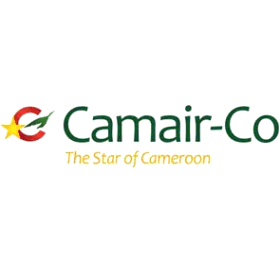Cameroon’s
national carrier Camair-Co has taken a
decisive step to reinforce its operational capacity by adding a second
Boeing 737-800 to its fleet under an ACMI
lease agreement with Smartwings. The new aircraft, which became
operational on October 1, now serves some of the airline’s most critical
domestic and regional routes. This development follows the recent
introduction of another Boeing 737-800 from the same provider,
reflecting Camair-Co’s urgent strategy to stabilize and grow its network
amid ongoing challenges.
For Cameroon’s aviation
sector and the wider Central African region, this move is highly
significant. With most of its own fleet grounded due to maintenance and
operational issues, Camair-Co has increasingly relied on
ACMI (Aircraft, Crew, Maintenance, and Insurance) leasing
arrangements to maintain service continuity. These short-
to medium-term contracts allow the carrier to deploy modern,
fuel-efficient jets without the immediate capital outlay or long-term
risks associated with direct ownership. In the current context, ACMI
solutions have emerged as a lifeline for the airline, enabling it to
remain competitive and responsive to market needs.
The
deployment of the newly leased Boeing 737-800 is already having a
tangible impact. The aircraft, which boasts a reputation for reliability
and cost-effectiveness, is being utilized on high-demand routes where
schedule integrity and passenger comfort are paramount. This includes
major domestic destinations as well as select regional links, helping
Camair-Co to protect its market share and meet rising passenger
expectations.
Camair-Co’s dependence on ACMI is not
limited to its partnership with Smartwings. The airline also continues
to collaborate with CemAir (Pty) Ltd,
another established ACMI provider, to ensure adequate coverage across
its network. These strategic alliances allow the airline to offer
regular flights even as its own legacy fleet faces prolonged periods of
inactivity. For travelers and the trade alike, this means increased
reliability and more choices across Cameroon’s skies.
For
the African air transport industry, Camair-Co’s story is an instructive
example of how airlines are leveraging flexible leasing models to
navigate fleet and financial turbulence. ACMI contracts provide a buffer
against operational volatility, granting airlines the agility to scale
capacity up or down in response to market shifts. As competition
intensifies and passenger demand fluctuates in the post-pandemic
landscape, such arrangements offer vital breathing room for carriers
seeking to rebuild and modernize.
The use of
ACMI-leased aircraft also brings indirect benefits. Passengers flying
with Camair-Co on these modern Boeing 737-800s can expect an improved
onboard experience, including better seating, enhanced cabin features,
and greater punctuality. For Camair-Co, the ability to field newer
aircraft bolsters its reputation as a safe and dependable operator,
which is crucial for regaining consumer trust and attracting new
business partnerships.
However, the heavy reliance on
ACMI also highlights the underlying challenges facing Camair-Co and
other African airlines. The need for ongoing fleet renewal, investment
in technical expertise, and sustainable business models remains
pressing. While ACMI solutions provide short-term relief, long-term
competitiveness will depend on a balanced approach that blends leasing
with targeted investment in owned assets, staff training, and
maintenance infrastructure.
For travel professionals
in sub-Saharan Africa, Camair-Co’s experience offers several key
takeaways. The flexibility of ACMI contracts can be a game-changer for
airlines facing similar operational constraints, providing a scalable
solution while longer-term strategies are developed. At the same time,
the trend underscores the importance of robust partnerships with
reputable ACMI providers, both within and beyond the
continent.
Looking ahead, Camair-Co’s ability to
deliver consistent, high-quality service will be watched closely by
industry stakeholders and passengers alike. The expansion of its
ACMI-leased fleet is a positive step, but the path to sustained growth
will require continued innovation and investment. As Cameroon’s flagship
carrier adapts to changing realities, its journey offers valuable
lessons for aviation markets across Africa on the power—and
limitations—of fleet flexibility in an evolving industry
landscape.
